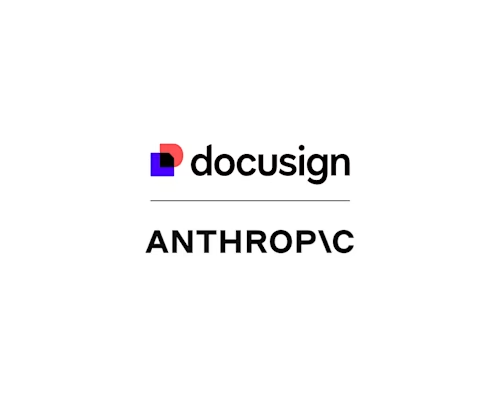

Publicaciones populares
Anthropic y Docusign anuncian alianza para la ejecución de contratos mediante IA
Docusign llega a Claude Cowork. Gracias a nuestra alianza con Anthropic, ahora puedes crear, revisar y gestionar contratos de principio a fin mediante lenguaje natural y de forma segura.


Descubre cómo crecen las organizaciones con Docusign
Docusign IAM: la plataforma de acuerdos que tu negocio necesita















